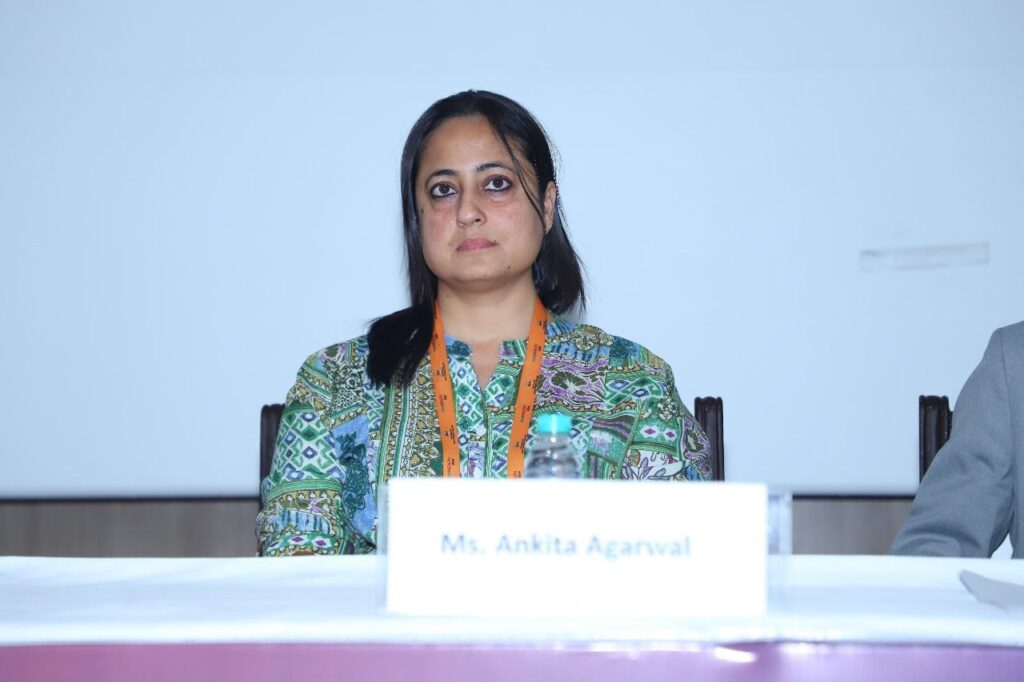
Shaping the Future of Indian Healthcare: Strategy, Sustainability, and Smart Systems
At the forefront of transforming healthcare delivery in India is a new wave of leadership focused on sustainable systems, strategic innovation, and long-term impact. One such voice is Ankita Agarwal, Vice President of Strategy and Special Projects at Marengo Asia Hospital, whose work is centered on redefining how hospitals operate — not just for today, but for the future.
In a candid exchange at the InnoHEALTH Conference 2024, she shared insights into building resilient healthcare ecosystems, integrating artificial intelligence meaningfully, and bridging the urban-rural divide through collaborative approaches.
Redefining Sustainability in Healthcare
Sustainability in healthcare often brings to mind cost-cutting or eco-friendly practices, but the reality goes much deeper. As Ankita explains, it’s about creating systems that endure and deliver quality care independently. “Sustainability means putting in place the right processes, infrastructure, and skilled staff — so that even if we exit a project, the hospital continues delivering high-quality care on its own,” she said.
This approach includes continuous staff training, implementation of standardized clinical protocols, and alignment with global quality benchmarks such as NABH and JCI. The focus is on enabling partner hospitals to become self-reliant, capable of maintaining high standards without constant external support.
Strategic Pillars for Long-Term Impact
To ensure healthcare facilities can operate efficiently and consistently, strategic planning is anchored around four key areas: people, processes, infrastructure, and technology. This translates into:
- Training medical staff to handle complex procedures with confidence.
- Establishing accreditation through recognized national and international bodies.
- Implementing clinical protocols for consistent and safe patient outcomes.
- Scaling capabilities in specialized areas to meet growing demand.
Equity in Healthcare: Closing the Urban-Rural Divide

One of the most pressing challenges in Indian healthcare is access — especially in rural and underserved regions. Addressing this, Ankita highlighted the importance of private-public collaboration. “We are open to working with government centers and standalone facilities. Through exposure, training, and knowledge transfer, we can help bring equitable healthcare to underserved regions,” she shared.
Rather than creating dependency, the goal is to empower local teams by upskilling staff and building capacity — ensuring improvements are sustainable over time.
AI in Hospitals: A Collaborative Tool
While artificial intelligence is often seen as a disruptor, in the healthcare context, it’s increasingly being embraced as a powerful support system. “Doctors are welcoming AI because it enhances their productivity,” Ankita noted. Whether it’s expediting diagnostic processes or helping manage high patient volumes, AI is proving to be a valuable ally.
“With validated, clinically approved tools, a doctor who used to see 50 patients a day can now manage 80 — without sacrificing quality,” she explained. In a landscape facing a growing disease burden and aging population, AI helps bridge the gap between demand and available expertise.
Looking Ahead: A Scalable, Resilient Vision
The vision is clear — build healthcare systems that are resilient, scalable, and accessible to all. By focusing on sustainable infrastructure, meaningful tech integration, and inclusive training, this approach is setting a new standard for healthcare delivery.
What emerges is a model rooted in empathy, backed by strategy, and driven by the belief that quality healthcare should be a universal standard, not a privilege.
Composed By
InnoHEALTH magazine digital team
Listen to the full podcast on our YouTube channel: https://www.youtube.com/watch?v=pFgmKYmp02o

